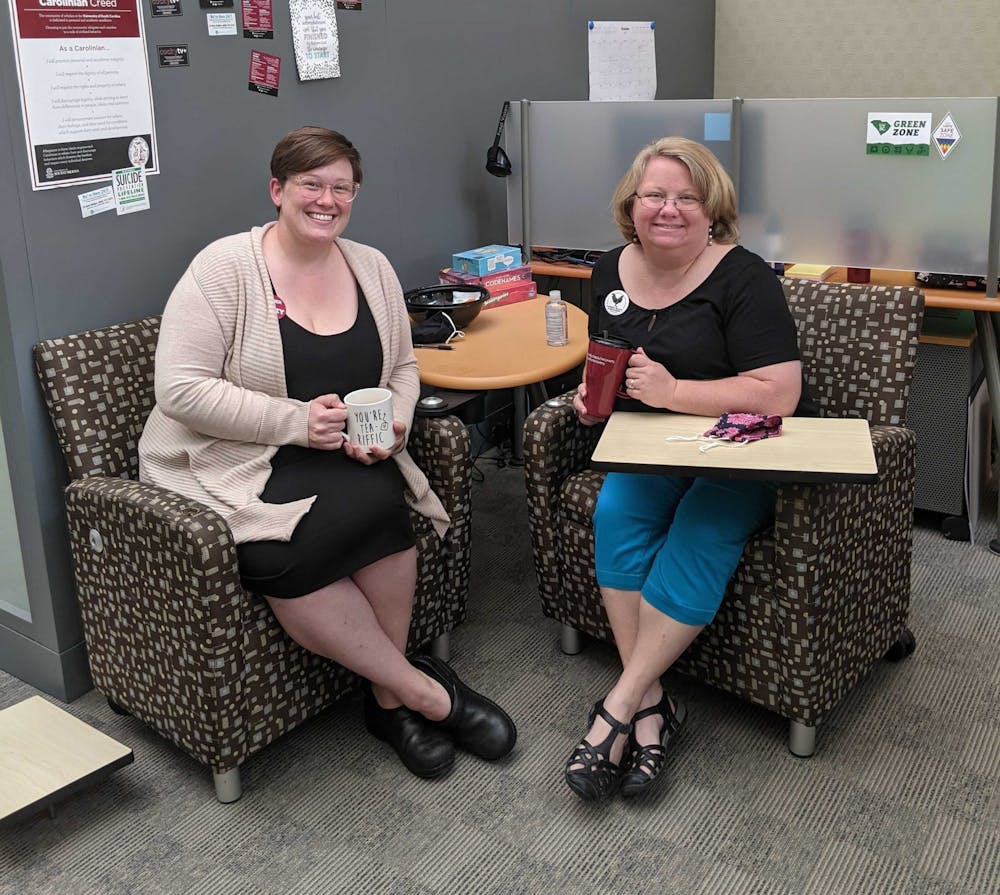Gamecock Recovery, an organization providing support and services to students in recovery, serves many functions in the Carolina community.
Gamecock Recovery originated as a student-run organization within in the College of Social Work. The program is now located in Strom Thurmond Wellness and Fitness Center. All of the students who created the organization have since graduated, but their legacy lives on. These students started by addressing what students in recovery needed and determining how they can create an organization to support them.
“They started in a meeting and worked with the, I think, the director of the counseling center at the time to try to get something started on campus,” Aimee Hourigan, director of Gamecock Recovery, said.
The main goal of the organization is to provide a sense of community to participants of the program. They successfully create space for people in recovery to come and find ways to get involved on campus and maintain sobriety without the pressure of feeling alone in the process.
“And I think the vulnerability of being able to say, ‘This didn’t work for me,' or, 'This was something I’m not as proud of,’ like, being able to do that for one another and grow from it. It's kind of that flexibility or bouncing forward from a setback or a challenge or painful experience ... It is a community of people who are doing that (together),” Gamecock Recovery coordinator Kat James said.
“The common phrase in collegiate recovery is that students want an authentic college experience," Hourigan said. "They want to do all the things that you're supposed to do in college, just without the alcohol and drugs... That's where we fit, is being able to have them tap into the Gamecock experience and maintain recovery.”
They have various different meetings, all of which focus on accessibility to anyone who needs them. The different types of meetings allow for support and cater to many different roads to recovery.
“We have really been very intentional about how we build the programs and the services, and so we have the heavy coaching as an option, you know, and we embrace all pathways,” Hourigan said.
Meetings occur on a weekly basis. Gamecock Recovery holds its broadest meeting, All Recovery Meetings, on Wednesdays, while 'Ready to Make a Change?' meetings occur Mondays at noon. Recovery Dharma is on Fridays, and Friends and Family meeting is held on Thursdays. Additionally, there is personalized support found in Recovery Coaching, which allows for one-on-one counseling.
“So it's a little bit of, this is going to be recovery and emotional support. And then also, it's about connecting them to the resources that they're going to need as they progress on their journey.” Molly B, a certified peer support specialist and recovery coach for Gamecock Recovery, said. “It's very individualized to the person to what their needs are, we try to look at their strengths and what is it that they want to do”
On Sept. 24, Gamecock Recovery hosted a panel to allow for student voices in the program to share their stories. One of the many goals they aim to work on in the community is ending stigma to drug recovery.
“What I do is because I want these other people who are dealing with this, to know that there are at least a few of us, that are public in recovery to help change that stigma a little bit at a time. So that's been my perspective,” a student panelist said.

